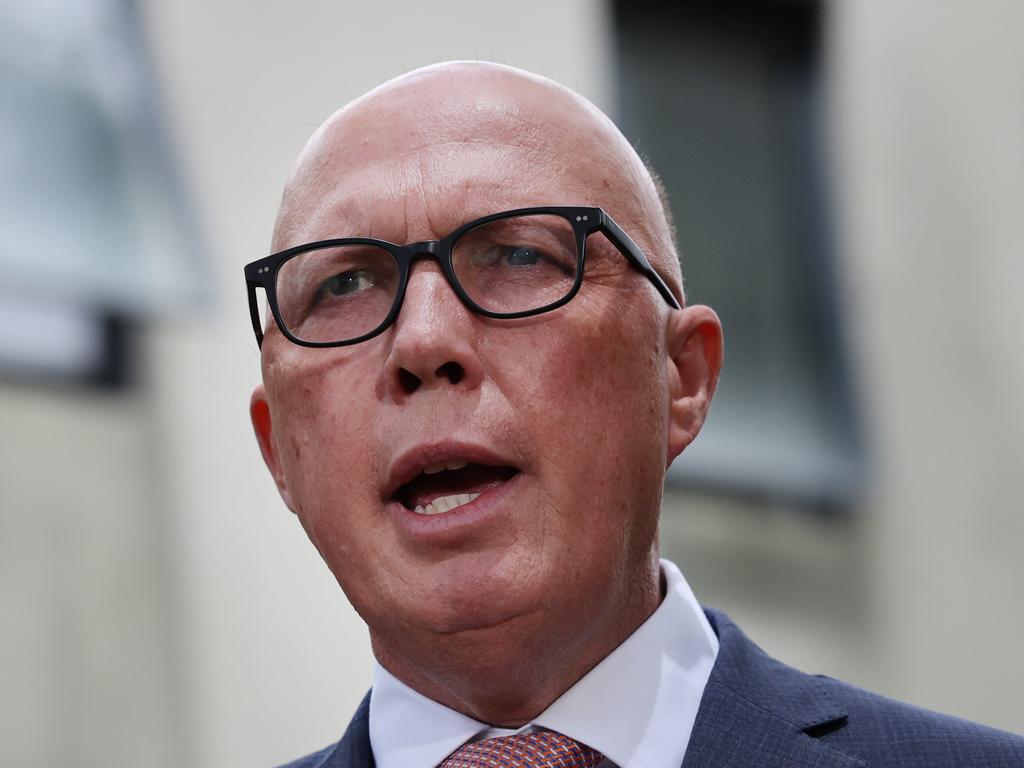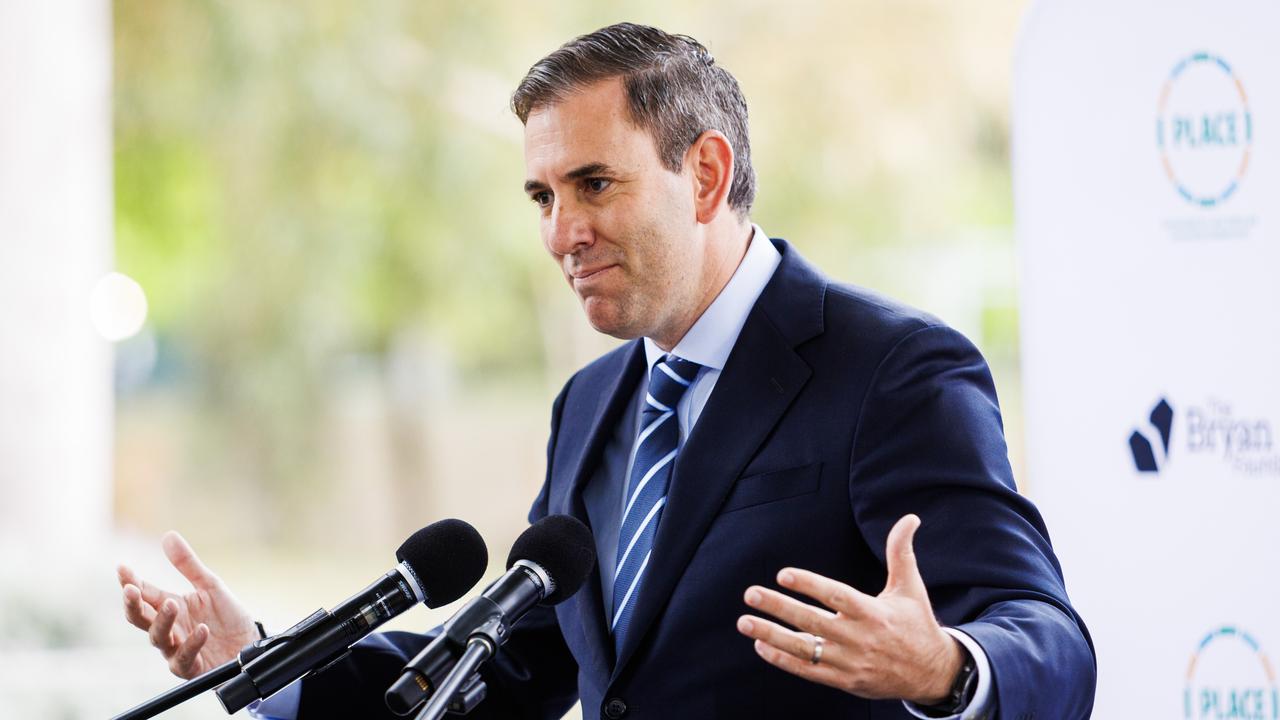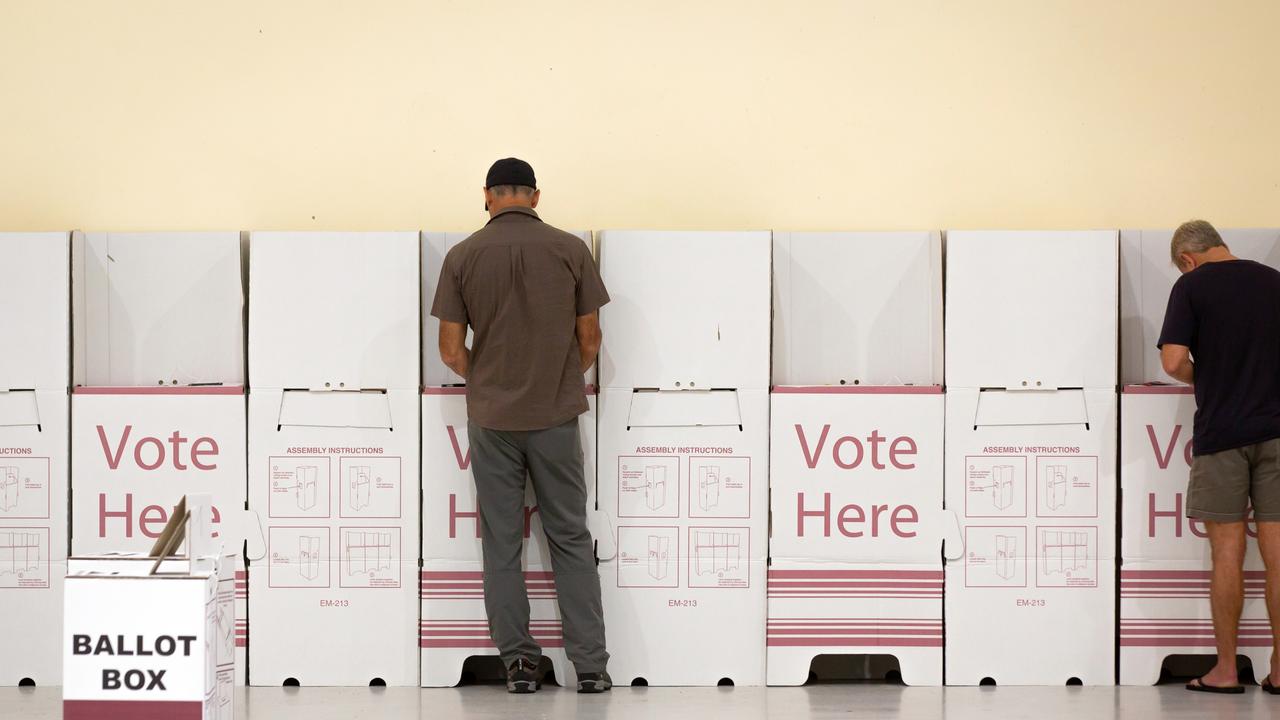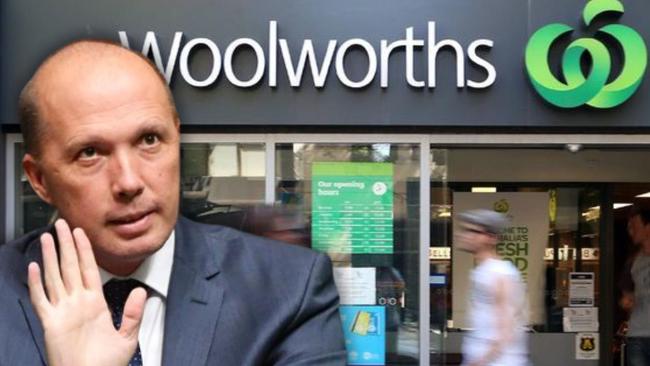
Welcome to the new Liberal Party, a party in search of identity and a constituency.
Peter Dutton’s call for a boycott of Woolworths on Thursday over the supermarket giant’s unwillingness to stock a few drab patriotic items, most of which will be manufactured in China, is a thinly disguised reach for voter support in outer suburban and regional Australia.
If we needed proof of this shift, in November 2019 Prime Minister Scott Morrison sought to ban what Peter Dutton proposed yesterday. Back then Morrison told the media he was looking to create legislation to ban secondary boycotts. Morrison was, he said, “working to identify mechanisms that can successfully outlaw these indulgent practices.”
Morrison had his eye on progressives imposing secondary boycotts on banks or mining companies.
As with much of his prime ministership, Morrison’s plans proved to be little more than a thought bubble. An individual or group that calls upon others to impose a boycott on a third party is a form of political communication and thus one of the protected forms of political expression in our constitution reinforced by the High Court.
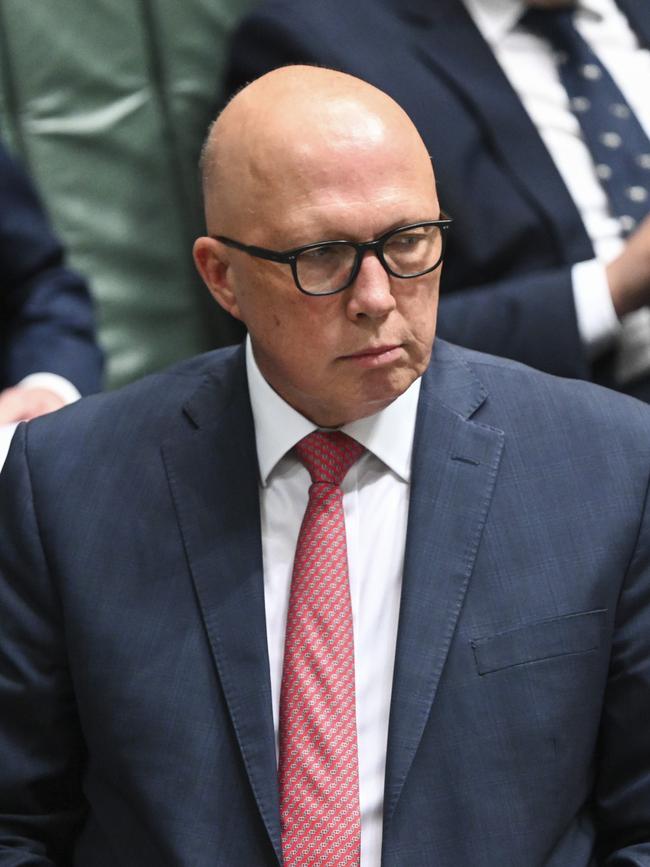
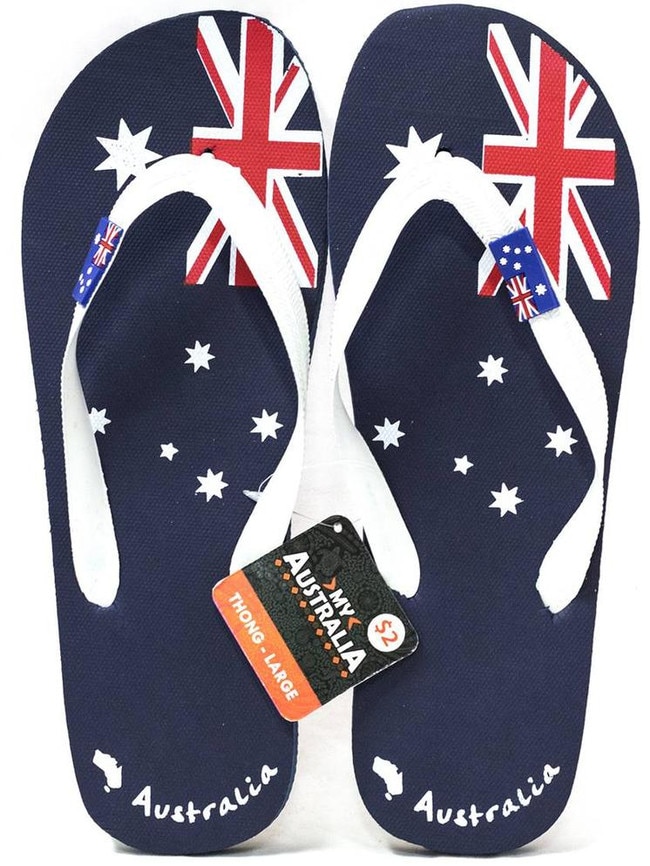
An effective boycott with Peter Dutton’s name all over it would be catastrophic. Woolworths is Australia’s biggest private employer with around 200,000 staff, stocking shelves and working checkouts.
But this is not a serious effort to bring Woolies to heel. Consumers don’t have a lot of choice, especially in the regions and outer suburbs of our cities where the big two supermarkets dominate and choice is generally limited to one or the other. Aldi, as the third player is almost as ubiquitous as Coles and Woolworths but presumably they are on the outer as well, having issued a statement on Thursday that they, too, could see little sense in stocking Australia Day paraphernalia.
The German budget supermarket, like Woolworths had made a decision based on sales in previous years and decided not to stock what NSW Premier Chris Minns yesterday could only describe as “green and gold thongs.” The Australian flag in various sizes is available for sale all year round in Woolworths’ department store chain, Big W.
Australians in the outer suburbs and regions have an ambivalent relationship with the major supermarket chains. There is convenience, ubiquity but little choice. There are real concerns over the treatment of Australia’s primary producers and a sense in recent times that price gouging during a period of high inflation has occurred. It may or may not be accurate but perception will always win out over reality.
One of my personal dislikes is the self-checkouts at Woolworths. Turning up there with a trolley to scan goods selected from the supermarket shelves with a bag of items previously purchased from the butcher and the baker will often lead to me being cast as a potential villain. The scanner sees other items remaining in the trolley and prevents the sale from progressing until the intervention of a Woolies’ employee who puts in a code to say that I am not a member of an international cartel of organised shoplifters.
My personal protest involves not a boycott because that would lead to starvation but I instead head for a checkout manned by an employee. Surprise, surprise, it’s generally quicker, so win-win.
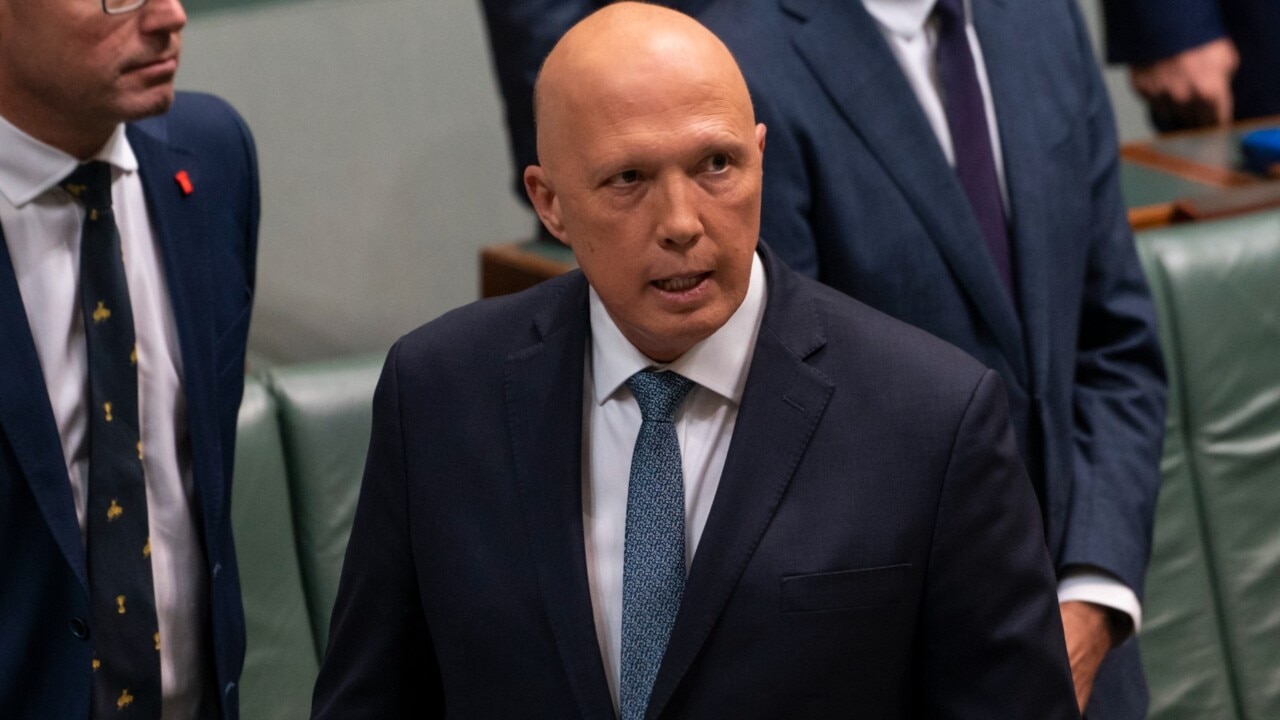
One person’s culture is another’s freedom of expression and association. Both sides of the political divide practice cancel culture which is why it is amusing to see the howls of outrage on this occasion.
The criticism that the Liberal Party is historically the bastion of free markets, is of little moment. The call for a boycott is more about symbolism and an appeal to a particular voting demographic.
Under Peter Dutton, the party has now declared that it is no longer the party of big business. Under Menzies, it was the party of voters, often women, in the suburbs. In the 1970s and 80s, it became the party of the Top End of Town. Under Howard, it almost became all things to all people, with Liberal blue ribbon seats in the wealthy areas of our cities rock solid while managing to better than break even in the suburbs.
Now, the party is hanging its shingle out in the outer suburbs in our major cities and in the regions.
Dutton has witnessed one of the great divides emerging in our major cities. The inner cities are full of professional, high salary, if not high asset, tertiary educated constituents who in the last election turned their backs on the Liberal Party, largely in favour of Teal independents.
Professional women, for example, are voting for the Liberal Party at a rate of around one in six.
There will be an effort to win these seats back but at this stage, it appears to be a half-hearted effort. As with Warringah, once these seats fall to independents, they are difficult to win back.
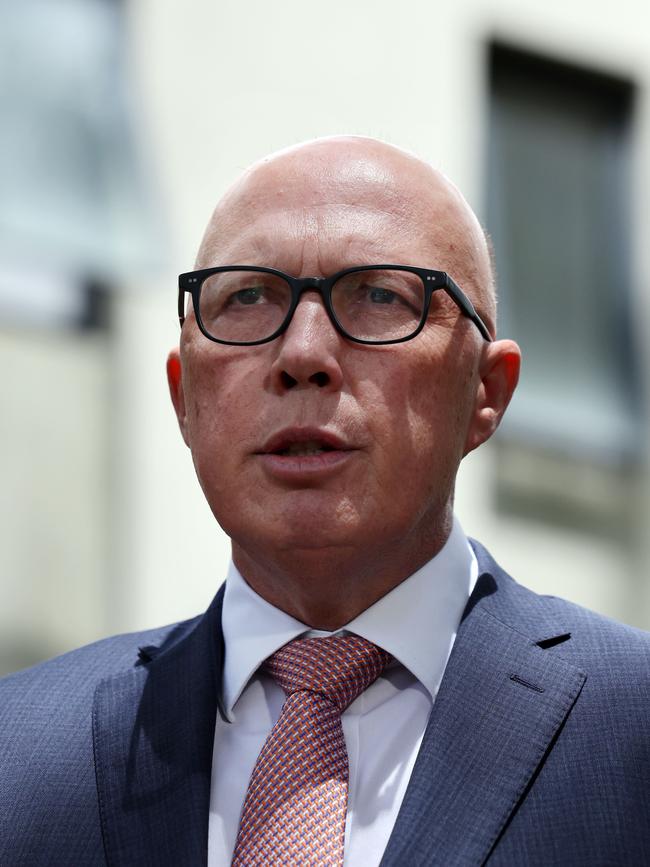
Clearly, Dutton’s view is these voters may not come back and if this is so, new constituencies need to be found.
There are risks attached to this approach. The Liberal Party doesn’t have a lot of structure or feet on the ground in the outer suburbs of Melbourne and Sydney. It will have to rely on a great surge of volunteers to help with door knocking, advertising and even handing out How-to-Vote cards at ballot boxes.
Hard evidence more than symbolic preaching about woke corporate culture is needed before votes will come on board. In 2022, the Morrison government made no submission to the Fair Work Commission in its determination of minimum wage rises. If Dutton is serious about representing these new found constituents, presumably he will advocate for salary rises for all low paid workers. That is yet to happen.
The fundamental question is are there enough seats up for grabs in these electorates to deliver the Liberal Party victory? And the answer is, probably not. There remain just four seats in greater Melbourne held by the Liberal Party, all in the city’s east and all are marginal. So there is vulnerability there. In Labor-held marginals across the country, only one, Blair, is in Brisbane’s outer suburbs. There is Hasluck on the outskirts of Perth. There are five marginal Labor-held seats on the outskirts of Sydney, including the Central Coast. The Coalition needs 18 seats to win government at the next election.
Woolworths will survive Dutton’s call for a boycott, possibly losing a little PR-skin. But in federal politics, the battle lines are now drawn and the Liberal Party hopes for a continued run of poor form from Prime Minister Albanese with a little help from some new friends.




